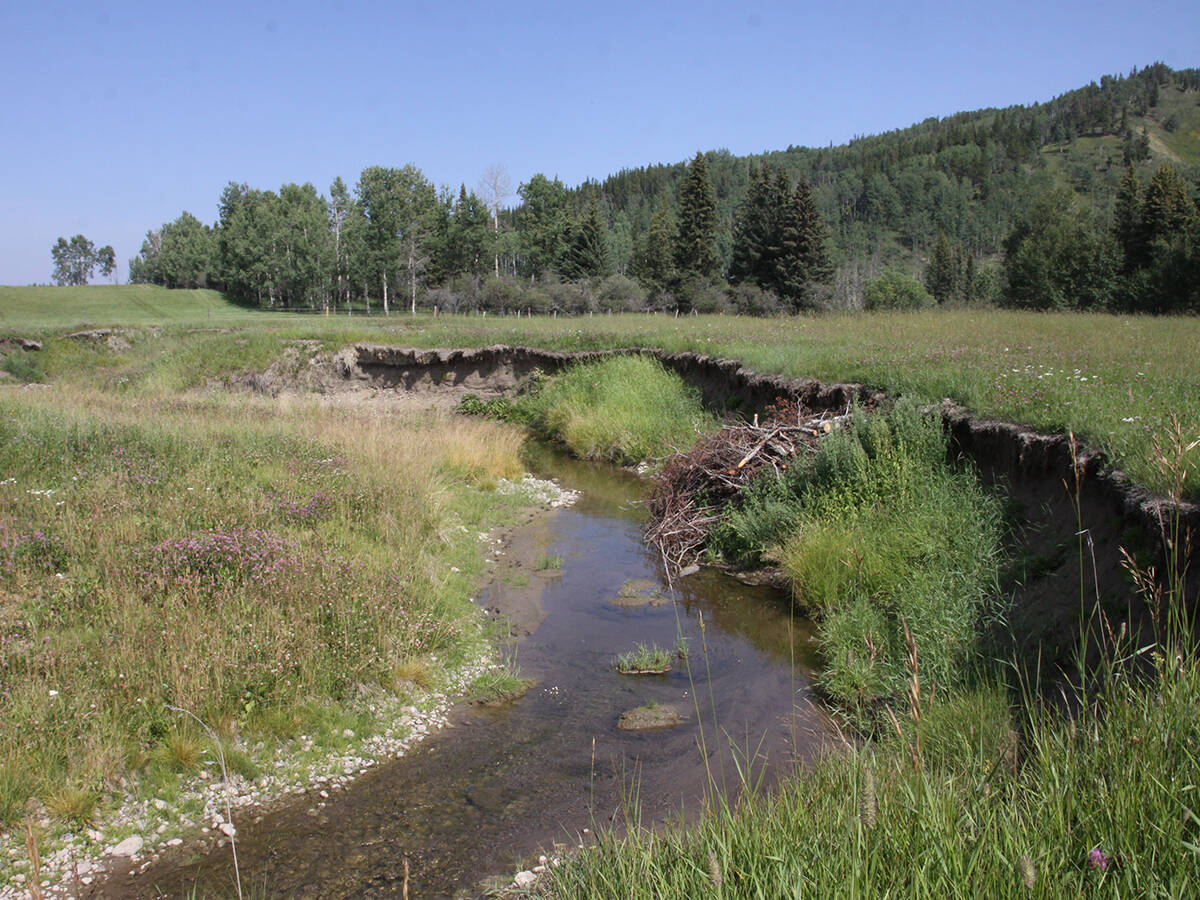Growers at the Saskatchewan Wheat Development Commission’s annual meeting last week passed a resolution urging the group to join Cereals Canada.
However, that doesn’t mean the commission will act on the resolution, says outgoing SaskWheat chair Bill Gehl.
Instead, directors will take the resolution “under advisement,” said Gehl and will act in what they see as the best interests of all Saskatchewan wheat growers.
“Like any resolution that’s passed at … any of the commissions’ annual general meetings here, we take them under advisement,” said Gehl.
Read Also

Alberta eases water access for riparian restoration
Alberta government removes requirement for temporary diversion licence to water plants up to 100 cubic metres per day for smaller riparian restoration projects
“It’s not the first time that this (issue) has come to the board and we do take it seriously, so we’ll take a look at it. But it’s part of a much bigger issue.”
SaskWheat is the only provincial wheat commission in Western Canada that is not a member of Cereals Canada.
Until now, SaskWheat board members have opted against joining Cereals Canada, which bills itself as a national, non-profit organization whose membership includes farm groups, grain-handling companies, wheat exporters and seed companies.
Cereals Canada’s mission is to support the Canadian wheat industry.
SaskWheat’s relationship with Cereals Canada has been the topic of debate for some time.
Some board members say the commission should not be part of an organization whose membership includes grain companies.
Instead, SaskWheat should represent the interests of farmers,
Gehl said SaskWheat is already affiliated with other organizations that promote the use of Canadian wheat and work on issues related to trade and market access.
For example, producer levies collected from Saskatchewan wheat growers are already being used to support programs at the Canadian International Grains Institute (CIGI), said Gehl.
SaskWheat is also a member of the Canada Grains Council, another national organization that represents the interests of Canada’s cereal grain, oilseed, pulse and special crops industries.
“I think there’s maybe a little bit of a misunderstanding that we’re somehow missing the boat on a lot of these issues” by opting out of Cereals Canada, Gehl said.
“We did look at joining Cereals Canada a couple of years ago and we thought at the time it was best to position farmers’ money at a higher level.”
On more than one occasion Gehl and other SaskWheat directors have suggested that farmers’ interests would not be properly represented by an organization whose members include large grain-handling companies, seed companies and biotech developers.
In addition to farmer-funded wheat commissions in British Columbia, Alberta, Manitoba, Ontario, Quebec and the Atlantic provinces, Cereals Canada’s membership includes the likes of Bayer, BASF, Cargill, Monsanto, Viterra, Dow AgroSciences, Richardson and G3.
“For some of the organizations that allow other value chain groups to speak for them, I think it’s fair to say that I question that,” Gehl said.
“We have the capacity here at SaskWheat to be able to (speak on our own behalf) so I don’t like allowing other groups to speak for SaskWheat and certainly for Saskatchewan levy payers, for our farmers here in Saskatchewan.
“What’s good for some members of those groups is not necessarily good for others.”
Terry Youzwa, a grain grower from Nipawin, Sask., offered a different view, saying it’s important for Saskatchewan wheat growers to have a voice in all discussions related to the wheat industry.
“It’s important to continue to deliver a message to SaskWheat that they should be part of Cereals Canada’s board table and they should participate with others in forming strategies and promoting market development,” said Youzwa.
“Especially when it comes to things like trade and market access, we are at risk of losing so many trade agreements right now, we should be doing anything we can to elevate our voice….”
As an example, Youzwa pointed to Italy, where country-of-origin labels will soon be required on all products containing Canadian durum.
“Country-of-origin labelling in Italy has been an issue for a while now and at the present time, Italy has not been actively buying Canadian durum and that’s a big market for Canadian durum growers,” he said.
“What is the SaskWheat commission presently doing to help support Canadian durum growers on this front? We know that Cereals Canada is … active in this regard… but there’s been a void there by SaskWheat by not participating on this front.”
Youzwa said he’s hopeful that SaskWheat will view this resolution along with the results of the recent SaskWheat election as a message that a new approach is needed.
“It’s time they got on with change,” Youzwa said.

















